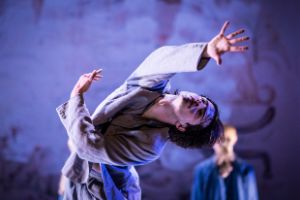
Pierre Boulez © Keystone Pictures
Pierre Boulez
Pierre Boulez (1925 – 2016), composer, conductor and music organiser and a central figure during the post-war period, would have been celebrating his 100th birthday this year. Boulez was able to look back on a long life during which he transformed himself from an aggressive young composer unafraid of provocation to a universally highly-valued artistic personality. The single constant factor throughout the Boulez’s entire compositional career was a continuous state of flux. The composer returned time and time again to already completed compositions, undertaking revisions and creating new versions which were frequently not merely reworkings, but possessed the character of new compositions. A continuous state of flux is also an appropriate description of the underlying nature of his music. Irrespective of the date of composition and the resources utilised, his music was always characterised by constant inner movement, development and variation.
Born in the small town of Montbrison near Lyon, Boulez briefly studied mathematics before changing to music which initially led to conflicts with his father. His earliest influences came from Olivier Messiaen and René Leibowitz who introduced him to twelve-note technique and the music of Arnold Schoenberg and Anton Webern. Boulez broke away from Leibowitz in 1946 following a dispute concerning his 1st piano sonata. During these formative years, Boulez was also highly interested in literature and French modern lyricism as reflected in his compositions. In 1952, he took part in the Darmstädter Ferienkurse [Darmstadt Summer Course] for the first time, swiftly establishing his reputation through his clarity of thought and ability for rhetorical intensity as a spokesman of the avant-garde alongside Karlheinz Stockhausen and Luigi Nono. By the time his chamber cantata “Le Marteau sans maître” was premiered in 1955, he had established himself as one of the leading contemporary composers of his time.
Boulez remained constantly active as a practical musician, beginning with the musical direction of the theatre group led by Jean-Louis Barrault which he took on immediately after the conclusion of his studies. From the end of the 1960s, Boulez increasingly devoted his energies to his internationally renowned conducting career while his compositional activity faded slightly into the background. He was successful in his creation of pioneering musical institutions through the foundation of the “Ensemble Intercontemporain” and the studio for electronic music IRCAM in Paris in 1975 and 1977 respectively. During the 1980s, the focus of his activities remained firmly on his conducting career as documented by his extraordinarily comprehensive list of recordings. The research undertaken at IRCAM since the early 1980s provided the foundation for significant solo and ensemble works featuring live electronics such as “Répons and Dialogue de l’ombre double”. Pierre Boulez died in January 2016 in Baden-Baden which had become his adopted home since 1958.
As of: February 2025